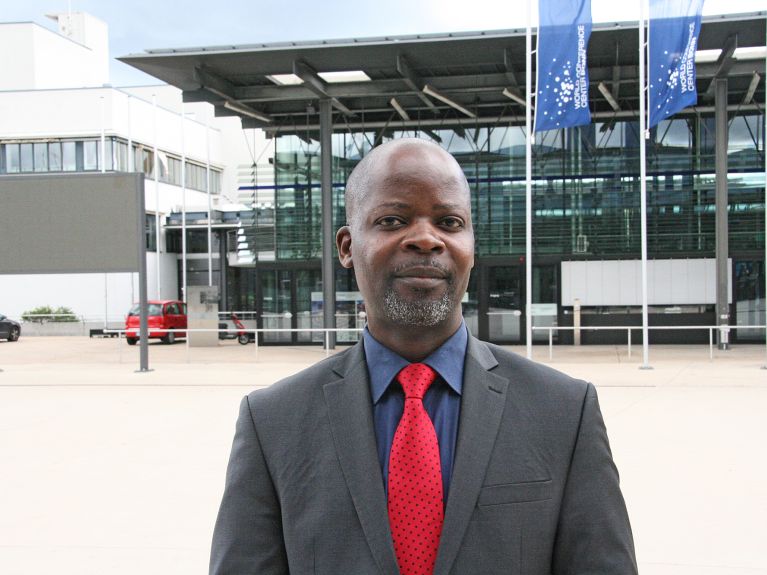“There’s a lack of analysis”
What the Kenyan economist James Shikwati thinks about the G20 Partnership with Africa and the Chinese approach to Africa.

Mr. Shikwati, you are considered an opponent of development aid. At the initiative of Chancellor Angela Merkel, the G20 nations adopted a new approach at their 2017 summit in Hamburg. What do you think of it?
The “G20 Leaders’ Declaration: Shaping an Interconnected World” is a great document that summarizes key challenges in the modern world. Unfortunately the document reveals that the underlying mindset in the G20 approach to Africa is to offer of “help”, and thus an attitude of some unquantifiable “Welcome African ownership…” takes centre stage. The issues given prominence in the African partnership include migration and corruption without elaborating on which weighted scale qualified Africa for this agenda. The document declaration fails to analyse how some of the G20 member country activities in Africa lead to corruption and catalyse migration, for example, through regime change, competition for natural resources, and rigged global market systems.

China most likely studied the weakness of the West’s approach in Africa.
China is taking a different approach in Africa to that taken by the West. What is your opinion of it?
China most likely studied the weakness of the West’s approach in Africa, namely buying artificial stability for fear of migrants from Africa, hiding behind “development aid”, and exporting value systems to further its own commercial interests. The Chinese approach has been that of deals, hardball bargains rather than fronting altruism. In the medium term, it has afforded Africans an alternative source of international cooperation with mega intra-Africa infrastructure projects. The Chinese interests have led to stiff competition among both domestic and international players for tenders for mega-projects. The new “tender wars” have become an underlying force that fuels fierce electoral contests redefining a governance environment that was previously centred on the competition to control raw materials and ethnicity. Once Chinese interests in Africa expand to a significant level, they, too, will likely start to set the agenda for Africa in a similar fashion to what the West has been doing for over 50 years. The alternative scenario is one where Africa takes advantage of both the Chinese and Western interests to grow the continent’s relevance in the global market.
You recently attended the Friedrich-Naumann-Stiftung conference “Start-up Africa – afrikanische Wirtschaft stark machen” in Bonn on strengthening the African economy. What is your advice to interested businesspeople?
Start-ups do not wait to be invited to any market place; they are the pulse, the first responders to market needs that the old players have ignored. Interested business people should work with their counterparts in Africa to create a good business environment, namely a political, legal and regulatory environment without which start-ups suffer stunted growth. In Africa, start-ups are major employers and fill in the gap where governments fail to offer services. With a clear framework to protect intellectual property through a patents system, interested business people can work together with African start-ups to align activities to strategic value chains and tap the huge opportunities that are presented by poor infrastructure, a lack of energy and food security, health, and education, among others.
Can you already name a successful example of this, a German company perhaps?
Mobisol Kenya is originally from Germany; they have been successful in providing energy solutions to rural homes that are not on the Kenyan electricity grid and even to some on the grid who nevertheless experience frequent power outages. Kenya is a fertile ground for both tech and non-tech startups which offer solutions in finance, agriculture, logistics and education, among others.
James Shikwati is Director of the Inter Region Economic Network in Kenya and considered an expert on Africa’s economic development, but is also a prominent critic of development aid.
Interview: Ludger Kersting
